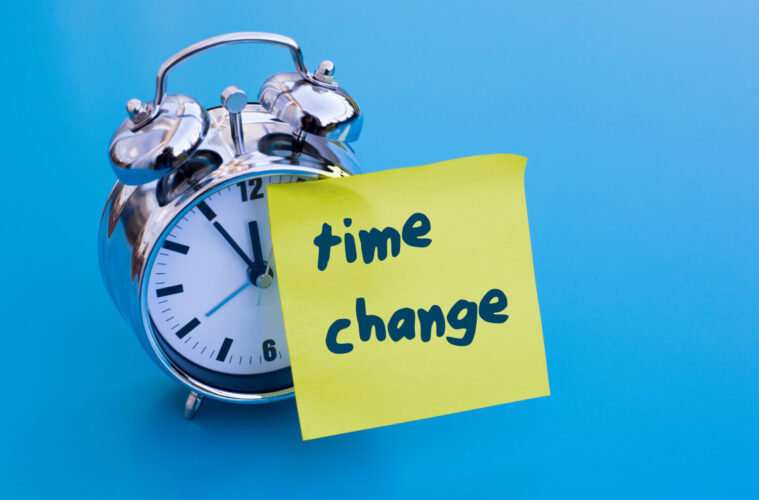If you sometimes think you’re in a time warp, you sort of are! It’s that time of the year again when most of the country “springs forward” at 2 a.m. Central Time on Sunday, March 12 — but some people want this to happen for the last time. Many find it difficult to adjust to daylight savings time, for one thing. If you’re one of those people whose body clock can’t keep up with the changing clocks, this one’s for you:
Why Some Find It Hard to Adjust to Daylight Savings Time
It’s scientifically believed that there is such a thing as a “body clock” — and that’s probably why you can’t sleep off that hangover in the middle of the day! But your body clock does more than make you suffer after a bender. Because when you don’t listen to your body clock and disrupt your own sleep-wake cycle, you’re going to be more susceptible to sleep deprivation-related problems. And with most mammals, humans included, we’re biologically made to be diurnals (or the opposite of nocturnals).
However, even if you follow what your body wants — and when it wants to sleep — it’s sometimes your surroundings (or zeitgeber) that can make it difficult even for your body to know when it’s actually sleepy. One of those external factors is daylight savings time. Succinctly, if you’re confused about when you’ll adjust the time on your watch, your body can also be hella thrown off about your usual time to rest.
How to Adjust to Daylight Savings Time Easily
Our own body is most likely going to betray us — because we sort of betrayed it first. (Thanks to DST!) It’s now contemplating how to make it difficult for us to wake up every morning for the next few weeks. If only there was a way we can transition smoothly.
There is! Here’s how:
- Set your clocks to the soon-to-be time. In this case, it’s spring forward. Therefore, you can adjust your time an hour in advance starting today — even if we’re not officially there yet!
- Do your best to go to sleep earlier than your usual time. Start doing, say, 15 minutes earlier than your usual schedule. Then do 30 minutes the night after. Do it gradually but do it consistently!
- Try to wake up earlier than usual. Same pattern — gradually but consistently.
- Make sure to get enough sunlight as early as you can. According to studies, that’s how your body clock will understand the adjustment better.
- Though not DST-exclusive (as this is beneficial to all of us 365 days/year), do your best to eat something healthy — especially on those sleep-deprived first few mornings!
- Don’t force yourself! If you need to take a short nap, try to do just that!
Daylight Savings Time May Become Permanent: Is It One to Lose Sleep Over?
Are you team Daylight Savings Time or anti-Daylight Savings Time? Because this great debate has been going on for a long, long time. There have been a few surveys in the past where some Americans were asked the same question — the survey yielded different results but almost all have answers that around 36% of Americans want DST to be an all-year-round occurrence. Whereas, about 30% wanted to stick to standard time.
It’s not just the citizens who are finding difficulties with adjusting to daylight savings time — in fact, it’s becoming a nationwide discussion among politicians, business people, and the average Joe. Legislators in California, Louisiana, Alabama, Florida, South Carolina, Tennessee, Idaho, Oregon, Ohio, Delaware, Colorado, Georgia, Maine, Washington, Montana, Wyoming, Minnesota, and Utah all wish to make DST permanent; other legislators from the other states also filed resolutions or legislations but with differing conditions. So far, there hasn’t been an answer from congress. Supporters of permanent DST hope the issue is laid to rest in 2023 once and for all.
If you’re dead set against daylight savings time, then you may have considered moving to Hawaii or Arizona to avoid it! Those states never jumped on the DST bandwagon. Furthermore, other US territories like Guam, Puerto Rico, American Samoa, the Virgin Islands, and The Northern Mariana Islands also don’t observe DST.
Moving Forward…
It’s time to spring forward on March 12! But if you’re not ready (or you don’t think your body is ready) to adjust to daylight savings time, you can try doing it slowly but make sure you will be consistent at it — plan things ahead! It will be difficult to *turn back time* and wish you did it sooner! But if you dread DST that much, a vacation to Oceania can be an option.
Advertising disclosure: We may receive compensation for some of the links in our stories. Thank you for supporting Irvine Weekly and our advertisers.

